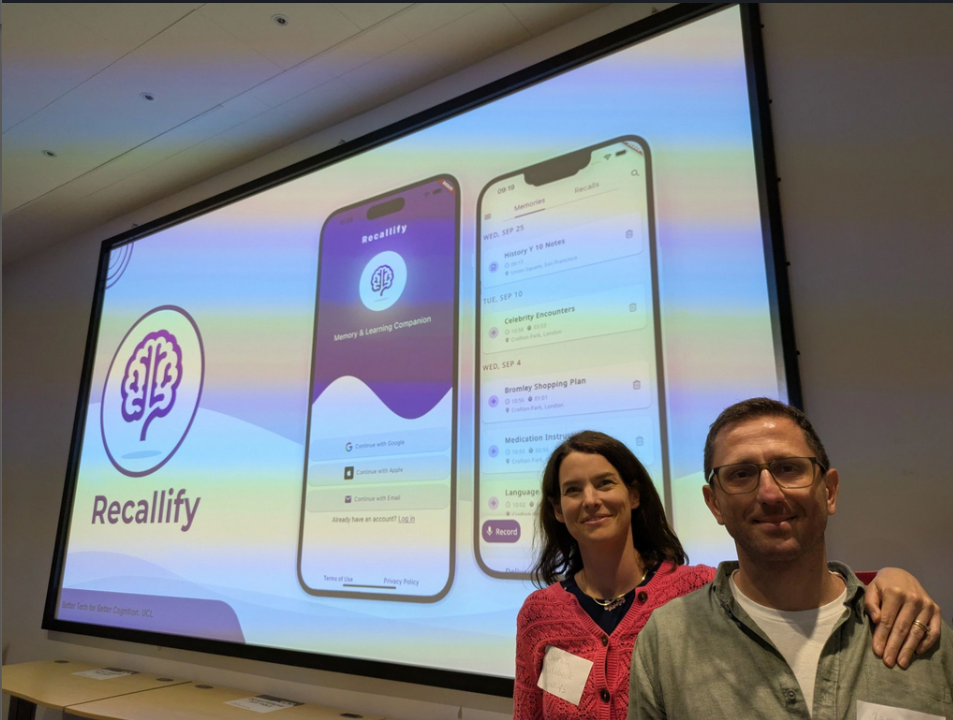Sharing Recallify at UCL’s Better Tech for Better Cognition event
The one-day conference at University College London brought together clinicians, researchers and digital-health founders to swap evidence and show working prototypes. Many of the discussions explored how technology can better support memory and learning in real-world clinical settings. The agenda covered everything from human–computer interaction to spin-out funding, with barely a quiet moment between sessions.

Our session: putting Recallify to the test
Recallify helps people with cognitive differences manage day-to-day life. Users can upload or record audio, video, text or PDFs, receive ultra-accurate AI transcription and summaries, then train memory and stay organised with quizzes and smart reminders. These tools are designed to improve memory and learning, giving users practical ways to retain and apply information.
During the talk we:
Played short video clips and read written comments from our community of roughly 700 active users, highlighting what they like (multilingual transcription, spaced-repetition quizzes) and what still needs work (Wi-Fi dead zones, onboarding for carers).
Ran a live demo showing on-device encryption, vector search, GPT-powered summarisation and quiz generation.
Announced an acceptability-and-feasibility study that extends testing from childhood-acquired brain injury to multiple sclerosis, stroke and Parkinson’s.
Key Take-aways
Simpler onboarding: clinicians want a “set-up-for-my-patient” flow so families can do the admin once.
Objective metrics: researchers asked for standard cognitive-function scales alongside user-reported outcomes.
Offline capture: poor connectivity in some clinics makes a local-first mode essential.
Shared dashboards: therapists would like to review recall stats between appointments.
What is next for Recallify
Clinician dashboard (feasibility-study edition) – give therapists a clear view of patient activity, recall streaks and flagged problem areas.
Text uploads, not just media – drag-and-drop notes, instructions or handouts straight into Recallify and get the same instant summaries and reminders.
Ask by typing or talking – users will be able to askquestoins with the keyboard as well as voice, making practice easier in quiet settings.
Broader patient-public panel – add Parkinson’s, brain-tumour and MS voices to our involvement group so new features reflect a wider range of needs.
Stay on track with NHS DTAC – work through the remaining compliance steps while keeping our release cycle fast and user-led.
Get Involved
Thanks to everyone who challenged us during the Q&A and over coffee—your input is already shaping the next release.
Interested in trialling Recallify in a clinic, school or research project? Email info@recallify.ai or visit recallify.ai.


